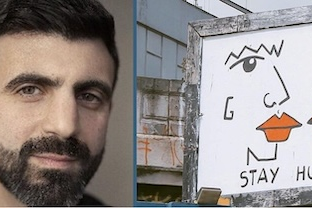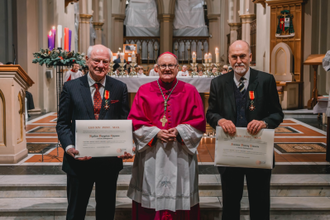South Africa: 40th anniversary of Soweto uprising

The complacent assumption that in the post-Sharpeville South Africa of the 1970's, law and order prevailed, led to a gross misinterpretation of the volatile situation in the Townships. This fooled many white South Africans and several members of the international community. The truth, however, was that all was not well!
Thursday 16 June marks forty years since the Soweto students embarked on the fateful march which set in motion a chain of subsequent uprisings that effectively rendered South Africa ungovernable during the 1980's. Although popularly known as the uprising against Afrikaans as a medium of instruction, the students were fighting against much greater injustices.
The 1976 Soweto uprising was a historic struggle - to protect and promote the dignity of the black person. The Bantu Education system was earlier referred to by Verwoerd as education for a menial place in society. This clearly violated human dignity as it deliberately sought to keep blacks inferior. Catholic Social Teaching (CST) says that human life is sacred and that the dignity of the person is the foundation of a moral vision for society. Under Apartheid this was violated through inter alia Bantu Education which imposed Afrikaans on blacks. The ideological issues aside, there were no sufficiently qualified teachers in Soweto able to teach their subjects in Afrikaans. That alone rendered the already inferior education that was offered to black children poorer in quality.
The Government's embargo on the subsidisation of township revenues meant there would be an annual significant loss of over a million rand for Soweto. There was an increase in salaried officials (mostly white) whose cost was almost half of the entire budget of Soweto for the financial year 1976 -1977. That increase had to be met entirely by the people of Soweto. The Government's decision was not only an injustice but a clear neglect of the principle of the common good and violation of human dignity, the dignity of black people. With rising unemployment at the time, frustration because of an inferior Bantu Education system and the Homeland system amongst others, the ground was fertile for an uprising.
The students rose in what was arguably the most successful campaign led by youth up to that time. It was an uprising that started in Soweto and reverberated not only in other parts of the country but around the world. The events of 16 June triggered wrath from the apartheid government but also solidarity from many different nations globally. The support that opponents of apartheid, and many of the student leaders that left South Africa received from abroad, reflect CST's principle of solidarity. Those families, communities, countries that received South Africans abroad, showed that in this global and interdependent world, solidarity - being my brother's or my sister's keeper - is indispensable.
As we commemorate the fortieth anniversary of the day when the young people of Soweto said 'Enough!' it is important for us as to remember that at the heart of it there were the principles of human dignity, common good and solidarity.
Follow Rampe Hlobo on twitter @rampehlobo


















